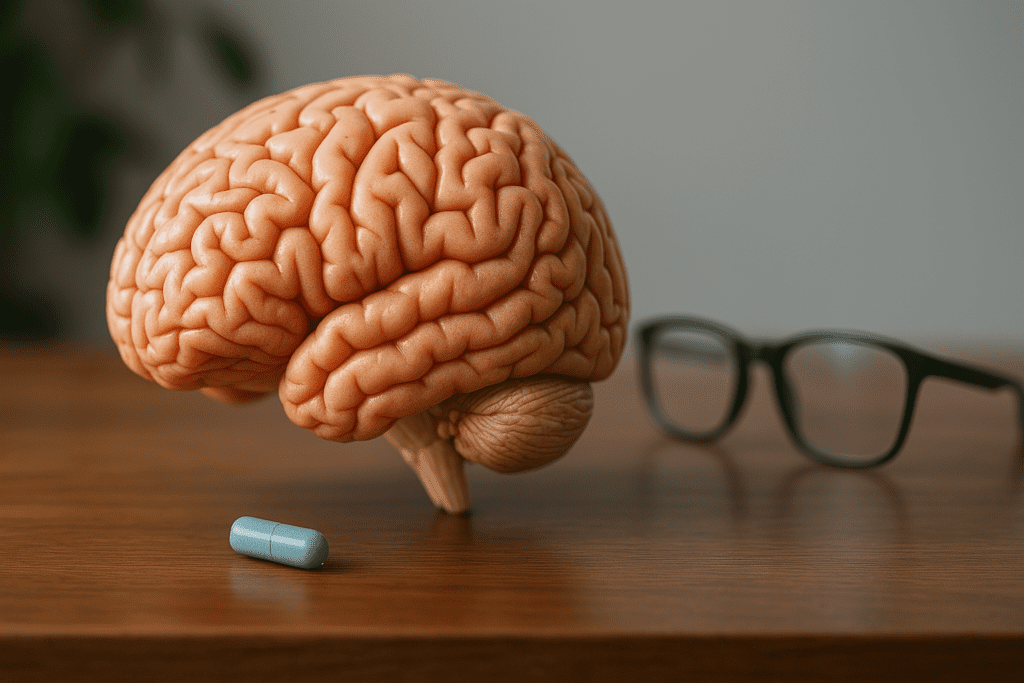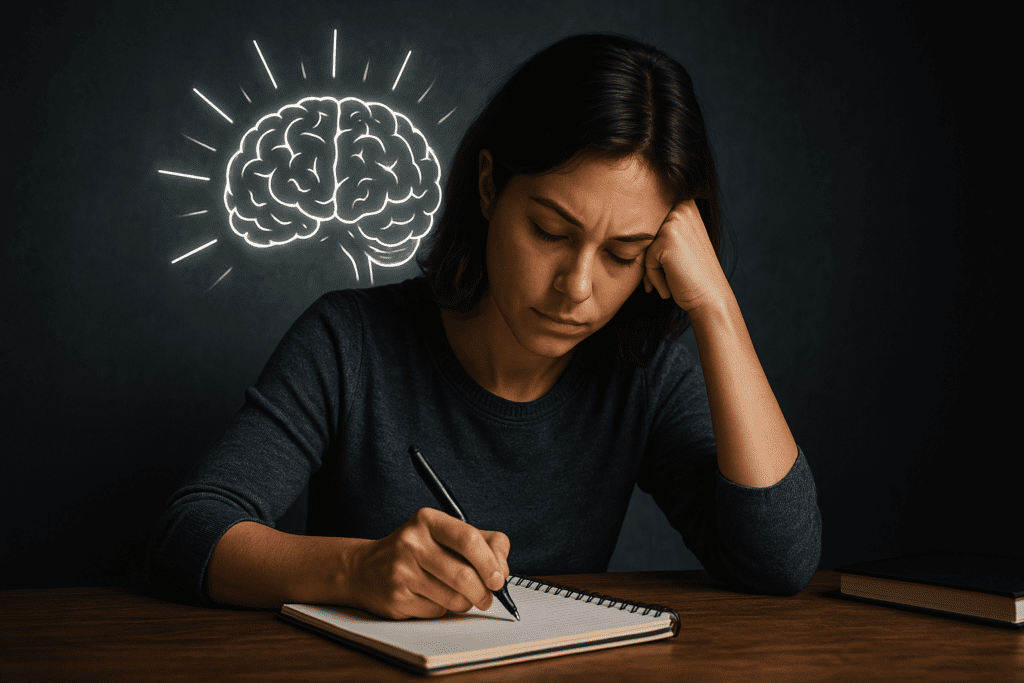Navigating adulthood presents its array of challenges, but for individuals living with attention-deficit/hyperactivity disorder (ADHD), the everyday can feel like a relentless balancing act. Managing appointments, keeping up with work obligations, nurturing relationships, and maintaining personal health can all feel disproportionately overwhelming. Adult ADHD often goes unrecognized or misdiagnosed, yet it remains a neurodevelopmental condition that profoundly impacts executive function, emotional regulation, memory, and focus. Fortunately, research-backed strategies exist that not only help manage symptoms but also support long-term brain health and longevity. Understanding how to cope with adult ADHD involves more than short-term symptom relief—it requires a holistic, brain-centered approach that nurtures mental clarity and resilience.
You may also like: How to Improve Focus and Concentration: Proven Techniques for Boosting Mental Clarity and Productivity
Recognizing Adult ADHD Beyond the Stereotypes
When most people think of ADHD, they envision hyperactivity in children—restless legs, bouncing knees, or impulsive outbursts in the classroom. Yet adult ADHD can present in subtler, more nuanced ways. It may manifest as chronic disorganization, persistent lateness, difficulty starting or completing tasks, and emotional reactivity. These behaviors often get chalked up to personality traits or life stress, making diagnosis more elusive. In adults, the hyperactivity component may be internalized, showing up as racing thoughts, irritability, or restlessness that’s hard to articulate.
Understanding how to manage adult ADHD begins with accurate recognition. It’s critical to move beyond outdated perceptions and acknowledge the diverse presentations of the disorder. Whether someone is diagnosed in their 20s, 40s, or beyond, the path toward healing ADHD involves validating their experience and tailoring strategies to their unique neurological makeup. Clinical evaluation, including structured interviews and validated questionnaires, is essential in confirming a diagnosis and ruling out other potential contributors such as anxiety, depression, or trauma.
The Science of Executive Dysfunction and Brain Aging
Adult ADHD is fundamentally a disorder of executive function—the brain’s system for organizing, planning, remembering, and regulating behavior. The prefrontal cortex, particularly the dorsolateral and ventromedial regions, plays a central role in these processes. In people with ADHD, neuroimaging studies have consistently shown differences in structure, connectivity, and neurotransmitter activity, especially involving dopamine and norepinephrine. These neurochemical imbalances can lead to difficulties with attention, working memory, and self-regulation.
Complicating matters further, adults with untreated ADHD face a greater risk of accelerated cognitive decline. Persistent stress, sleep disturbances, and poor lifestyle habits can wear down the brain over time. This makes brain-supportive strategies not only beneficial for symptom management but also vital for long-term cognitive preservation. Knowing how to help attention deficit disorder in adulthood includes protecting the aging brain through evidence-based practices that reduce inflammation, enhance neuroplasticity, and support neurotransmitter balance.

Mindful Structure: The Foundation of ADHD Management
For adults living with ADHD, chaos often lurks just beneath the surface. Establishing structure in one’s environment and daily routines can help reduce cognitive overload and improve follow-through. But structure must be thoughtfully designed—it should reflect one’s natural rhythms and account for common ADHD challenges like time blindness, task inertia, and distractibility. Creating personalized systems for organizing tasks, using external reminders, and breaking large goals into manageable steps can transform overwhelming into forward momentum.
One effective approach is time-blocking, where the day is divided into focused work sessions, breaks, and transitions. This method pairs well with visual timers and tactile tools like whiteboards or sticky notes, providing tangible anchors for attention. These are just some of the ways to help ADHD symptoms by making cognitive demands less taxing. Additionally, engaging in regular reflection, such as weekly reviews or journaling, enables individuals to recalibrate and make intentional adjustments to their strategies.
Neuro-Nutrition: Fueling Focus Through Diet
What we eat profoundly impacts how we think, feel, and focus. For individuals with ADHD, a nutrient-rich, anti-inflammatory diet can serve as a cornerstone of healing. Research indicates that omega-3 fatty acids, found in fatty fish like salmon and mackerel, support dopamine regulation and improve attention. Similarly, magnesium, zinc, iron, and vitamin B6 all contribute to optimal neurotransmitter synthesis.
Processed foods, artificial additives, and refined sugars have been linked to worsened ADHD symptoms, making a whole-foods approach especially important. While no single diet “cures” ADHD, thoughtful dietary choices can significantly ease the cognitive burden. Exploring how to ease ADHD through nutrition may also include considering elimination diets in collaboration with a healthcare provider, particularly if sensitivities to gluten, dairy, or food dyes are suspected.
Gut health also plays a pivotal role in brain function. The gut-brain axis, influenced by the microbiome, impacts mood, cognition, and immune regulation. Incorporating probiotics through fermented foods or supplements may support emotional regulation and concentration. Functional medicine practitioners often emphasize nutritional interventions as one of the key ways to help ADHD sustainably and holistically.
Movement as Medicine: Exercise and Cognitive Vitality
Regular physical activity is a powerful, drug-free intervention for adult ADHD. Exercise increases dopamine and norepinephrine availability, improves executive function, and reduces anxiety and depression. Aerobic activities such as brisk walking, cycling, and swimming are particularly beneficial, but resistance training and yoga also offer cognitive and emotional benefits.
What sets exercise apart is its dual role in both managing current symptoms and protecting long-term brain health. Exercise supports neurogenesis in the hippocampus and improves vascular health, contributing to longevity and resilience. For those learning how to stop ADHD from disrupting daily life, incorporating consistent movement—even in small amounts—can offer near-immediate benefits in mood and attention.
To make exercise sustainable, it helps to associate movement with intrinsic rewards. Choosing enjoyable activities, exercising with others, or setting up habit cues (like placing workout clothes near the bed) can make it easier to follow through. Understanding how to handle adult ADHD isn’t just about building discipline—it’s about finding adaptive strategies that work with, not against, the ADHD brain.
Sleep Optimization: The Forgotten Pillar of Focus
Sleep disturbances are both a symptom and a trigger of worsening ADHD symptoms. Poor sleep quality impairs attention, memory consolidation, and emotional regulation, exacerbating the cognitive difficulties associated with ADHD. Many adults with the disorder struggle with delayed sleep phase syndrome, restless leg syndrome, or insomnia.
Addressing sleep hygiene is essential in any plan to heal ADHD. Consistent wake and sleep times, dimming screens in the evening, and reducing caffeine intake after midday can improve circadian regulation. Some individuals benefit from melatonin supplementation or cognitive behavioral therapy for insomnia (CBT-I). Optimizing sleep isn’t a luxury—it’s one of the most effective ways to help ADHD symptoms from the ground up.
Adults wondering what to do for ADHD often overlook sleep because of its subtle, long-term effects. However, research has shown that even minor improvements in sleep quality can yield significant gains in focus, task persistence, and mood regulation. Prioritizing rest is not a sign of weakness but a strategic investment in one’s cognitive capacity.
Cognitive Behavioral Therapy: Rewiring Thought Patterns
While medication can be highly effective, non-pharmacological approaches like cognitive behavioral therapy (CBT) are crucial components of ADHD treatment. CBT helps individuals recognize and reframe negative self-talk, develop coping strategies for stress, and cultivate realistic expectations around productivity and self-worth. This therapy targets the emotional fallout of living with untreated or late-diagnosed ADHD—shame, frustration, and feelings of inadequacy.
CBT has been shown to improve self-efficacy, time management, and emotional regulation. For those seeking how to cope with adult ADHD holistically, this therapeutic model provides tools that extend beyond symptom control. Working with a trained therapist who specializes in ADHD can make a significant difference, especially when CBT is integrated with mindfulness techniques that enhance present-moment awareness.
These methods can also be used preventatively. Learning how to manage adult ADHD often involves building emotional resilience to withstand setbacks without spiraling. Therapy supports the development of metacognition—the ability to think about one’s thinking—which is crucial for planning, flexibility, and problem-solving. Investing in therapy is a step toward both healing ADHD and fostering long-term brain health.

Mindfulness, Meditation, and Attention Training
Mindfulness and meditation practices offer powerful ways to train attention and cultivate emotional regulation. Although it might seem counterintuitive to ask someone with attention difficulties to sit still, mindfulness is less about stillness and more about cultivating awareness. Practices like mindful breathing, body scans, and guided imagery can help reduce reactivity and improve focus over time.
Neuroscientific studies have shown that regular mindfulness practice leads to structural changes in brain regions involved in attention, memory, and emotional regulation—making it a brain-supportive strategy with implications for longevity. Understanding how to deal with ADHD as an adult requires not just managing distractions but also learning how to relate to them differently. Mindfulness builds the capacity to pause, reflect, and choose rather than react automatically.
Meditation doesn’t have to be formal. Even short sessions of five to ten minutes a day can be beneficial. Many adults with ADHD find success using meditation apps or attending classes that blend movement with mindfulness, such as tai chi or qigong. These practices align with the broader goal of dealing with adult ADD in a sustainable, nourishing way.
Pharmacological Support: Weighing Benefits and Risks
For many adults, medication is a core part of managing ADHD symptoms. Stimulants like methylphenidate and amphetamines work by increasing dopamine and norepinephrine levels in the brain, often leading to improved attention, reduced impulsivity, and enhanced task persistence. Non-stimulant medications, such as atomoxetine or guanfacine, may also be appropriate depending on the individual’s health profile and symptom presentation.
Medication should never be seen as a standalone solution, but when combined with behavioral strategies and lifestyle changes, it can be highly effective. Working closely with a knowledgeable psychiatrist ensures that the right dosage and medication type are chosen, minimizing side effects and supporting long-term health. It’s important to monitor cardiovascular health and sleep quality while on medication, especially for those concerned with how to stop ADHD from negatively impacting their overall wellness.
A holistic perspective integrates medication with brain-supportive strategies, fostering a balanced approach that honors both neurobiology and lifestyle. Ultimately, what to do for ADHD depends on personal values, medical history, and functional goals. Open communication with healthcare providers is essential for tailoring a plan that evolves.
The Role of Community, Purpose, and Self-Compassion
Social support and a sense of purpose can serve as powerful protective factors against the emotional and cognitive toll of ADHD. Many adults with ADHD struggle in isolation, internalizing years of criticism or misunderstanding. Building a community—whether through therapy groups, online forums, or friendships—can provide validation, accountability, and shared resources.
Self-compassion is equally vital. Learning how to treat an ADHD child at home often involves empathy and patience; these same qualities are essential when navigating adult ADHD. Rather than viewing executive function challenges as personal failings, reframe them as opportunities for creative adaptation. The journey toward healing ADHD begins with acceptance, not perfection.
Cultivating a sense of purpose—whether through meaningful work, creative pursuits, or volunteering—also provides motivational structure. When daily efforts feel tethered to a larger vision, persistence becomes more sustainable. Understanding how to help attention deficit disorder at any age includes recognizing the importance of emotional fulfillment and social connection as essential components of wellness.
Expanding the Framework: Long-Term Support and Emerging Innovations
In recent years, innovations in digital health have begun to transform the landscape for adults managing ADHD. Mobile applications and wearable devices now offer real-time monitoring of focus patterns, sleep quality, and behavioral routines. These tools provide personalized feedback, nudging users toward more consistent habits while offering valuable data for clinicians and coaches. For individuals exploring how to manage adult ADHD in a data-informed way, such tools can bridge the gap between awareness and action. While not a substitute for therapy or medical care, they can augment traditional strategies and promote a more engaged, proactive approach to daily life.
Another promising area involves the use of neurofeedback, a technique that trains individuals to regulate their brainwave activity through real-time feedback. This approach has shown potential in improving attention, emotional regulation, and working memory in adults with ADHD. Though research is ongoing, early studies suggest it may offer a non-invasive alternative or supplement to medication for some individuals. For those seeking how to cope with adult ADHD without relying solely on pharmaceuticals, neurofeedback presents a compelling, brain-based intervention that aligns with principles of neuroplasticity and long-term adaptability.
Beyond technology, workplace and educational accommodations are also crucial elements of long-term support. Adults with ADHD often thrive in environments that allow for flexibility, creativity, and autonomy. Employers who understand the condition can make small yet impactful adjustments, such as offering noise-canceling tools, flexible schedules, or permission to use fidget devices. Similarly, adults returning to school may benefit from extended testing times, access to distraction-free settings and support from academic coaches. Understanding what to do for ADHD in professional and academic settings is key to ensuring that talent isn’t lost to unnecessary obstacles.
It’s also important to consider the role of ongoing education and self-advocacy. Learning how to deal with adult ADD often means becoming your own best advocate—communicating clearly with healthcare providers, employers, family members, and peers. Attending ADHD-specific workshops, webinars, and support groups can deepen self-knowledge and keep individuals up to date with evolving research and practices. Over time, this foundation of knowledge can empower people to adjust their strategies and remain resilient amid life’s transitions and stressors.
Finally, addressing co-occurring conditions such as anxiety, depression, or learning differences is vital for comprehensive care. Many adults with ADHD face overlapping challenges that, if left unaddressed, can worsen core symptoms and impact quality of life. A coordinated, integrative care model—one that includes mental health professionals, medical providers, and holistic practitioners—ensures that each aspect of well-being is acknowledged and supported. Healing ADHD is rarely about just one thing; it’s about aligning various resources in service of a balanced, sustainable lifestyle.
The future of ADHD care is expansive, inclusive, and increasingly personalized. As we continue to demystify this condition and embrace more holistic, brain-centered approaches, the opportunity arises to not only reduce symptoms but also unlock deeper creativity, productivity, and joy. For adults navigating the complexities of ADHD, this expanded toolkit offers both hope and empowerment—a reminder that support is not only possible but evolving.
With continued attention to evidence-based strategies, compassionate care, and individual strengths, adults can learn not only how to ease ADHD but how to thrive with it. The path forward is not without obstacles, but it is illuminated by knowledge, community, and the persistent drive to live with clarity, intention, and purpose.

Frequently Asked Questions (FAQ): Adult ADHD and Holistic Management
1. What are some unconventional ways to help ADHD beyond therapy and medication?
Unconventional approaches can include cold exposure therapy, structured adventure-based learning, and cognitive rhythm training. These methods aim to stimulate the nervous system in novel ways that reinforce focus and self-regulation. For instance, cold-water immersion can trigger a norepinephrine release, enhancing alertness and reducing impulsivity. Biohacking tools such as light therapy or brainwave entrainment devices are also emerging as experimental yet promising ways to help ADHD when integrated with traditional strategies. While these techniques may not be mainstream, they offer individuals a chance to explore customized interventions that go beyond standard protocols.
2. How can someone effectively learn how to cope with adult ADHD in a high-pressure work environment?
High-pressure workplaces demand executive functioning skills that ADHD can compromise, but strategic accommodations can close that gap. Techniques such as the “two-minute rule”—if a task takes less than two minutes, do it immediately—can be game-changers. Creating personalized dashboards that visualize project timelines can also support time management. For those exploring how to cope with adult ADHD, it’s essential to request reasonable accommodations without shame. Open conversations with HR or team leads can unlock flexibility and increase productivity, ultimately empowering people to thrive in their roles.
3. Are there specific ways to support a child at home that can evolve into adult ADHD management strategies?
Yes, many of the foundational principles behind how to treat an ADHD child at home can translate into adulthood with adaptation. Tools like visual schedules, reward systems, and designated calm zones can be reimagined into adult productivity boards, habit-tracking apps, and self-regulation spaces. For example, what begins as a sticker chart in childhood may evolve into a digital badge system for tracking daily wins. These overlapping tools show that understanding how to treat a child at home can foster lifelong habits when reinforced with autonomy. Encouraging ownership and celebrating small milestones remain crucial regardless of age.
4. How can mindfulness be adapted for someone who struggles with stillness or formal meditation practices?
Not everyone with ADHD resonates with traditional mindfulness practices, but alternative forms can still yield benefits. Walking meditations, guided visualization, or even mindful cooking sessions offer entry points for those needing sensory engagement. The key lies in choosing methods that align with an individual’s attention style. For someone exploring how to stop ADHD from hijacking their focus, combining movement with intentional breathing may be more effective than silent sitting. By reframing mindfulness as active awareness, individuals can practice self-regulation without forcing themselves into stillness that feels unnatural.
5. What role does community play in long-term ADHD management?
Isolation can intensify symptoms, while community offers a buffer against emotional dysregulation and low self-esteem. Peer groups—whether virtual or in-person—can serve as testing grounds for communication tools, accountability systems, and emotional support. Learning how to manage adult ADHD often includes recognizing the value of shared experience. Engaging in regular dialogue with others who understand ADHD from the inside out provides both encouragement and practical wisdom. These interactions make the journey toward healing ADHD feel less lonely and more navigable.
6. Can diet alone make a significant difference in managing symptoms?
Diet is one of the most underutilized yet impactful tools for managing ADHD. A nutrient-dense, anti-inflammatory diet high in omega-3s, lean protein, and fiber can improve dopamine function and gut-brain communication. While it’s not a standalone solution, diet complements all other interventions and often improves outcomes when used synergistically. Those learning how to deal with adult ADD should consider functional nutrition assessments to identify deficiencies or intolerances. Food is not a cure, but it can be a powerful lever in the broader strategy of how to help attention deficit disorder sustainably.
7. Are there digital tools specifically designed to help adults with ADHD stay organized and focused?
Yes, several digital platforms now offer ADHD-specific features such as task chunking, dopamine-reward interfaces, and real-time nudges. Tools like Sunsama, Notion, and Focusmate combine visual planning with accountability structures, which is helpful for people figuring out how to handle adult ADHD in daily life. Many of these platforms are customizable, allowing users to experiment until they find the ideal configuration. Integrating these tools can offer concrete ways to help ADHD by automating decisions and reducing friction in task initiation. With the right digital ecosystem, focus becomes more about flow and less about force.
8. What are the psychological effects of late diagnosis, and how can one recover from them?
A late diagnosis can lead to an identity crisis, grief, and feelings of lost time. Adults may internalize years of being misunderstood or mislabeled as lazy or careless. Addressing these psychological wounds is essential in the broader context of how to deal with ADHD as an adult. Therapy focused on re-narrating one’s life story can help individuals reclaim their agency and build self-trust. Emotional healing is as important as symptom management in the pursuit of healing ADHD holistically.
9. How does sleep architecture impact adult ADHD, and are there biohacks to improve it?
Adults with ADHD often experience delayed circadian rhythms or fragmented sleep cycles, which can impair focus and executive functioning the next day. Interventions such as morning light exposure, consistent wake-up times, and magnesium supplementation can reset sleep patterns. Devices like smart rings and sleep trackers offer insights that help personalize sleep hygiene protocols. In the journey of discovering how to ease ADHD symptoms, improving sleep is often a hidden catalyst for better performance. Biohacking sleep isn’t about complexity—it’s about consistency and alignment with neurobiological needs.
10. What are some advanced strategies for individuals who have tried everything but still struggle?
For individuals who feel like they’ve exhausted all options, exploring lesser-known modalities like EMDR (Eye Movement Desensitization and Reprocessing), polyvagal therapy, or transcranial magnetic stimulation may provide breakthroughs. These approaches work on the nervous system in non-linear ways and may address root-level dysregulation. In cases where traditional approaches stall, reassessing coexisting conditions like autism spectrum traits or trauma history can uncover new treatment directions. Rebuilding from a place of curiosity rather than frustration is a key principle when asking what to do for ADHD that resists conventional treatment. There’s always a next step—it’s just a matter of recalibrating the path.
Conclusion: Creating a Sustainable Framework for Focus and Longevity
Successfully learning how to cope with adult ADHD is a dynamic, lifelong process. It requires more than symptomatic relief; it demands a holistic commitment to brain health, emotional regulation, and lifestyle balance. From neuro-nutrition and exercise to mindfulness and community, each strategy plays a critical role in shaping a supportive framework that enhances focus and promotes cognitive resilience over time.
This framework is not rigid. Instead, it adapts to each individual’s journey, allowing for periods of experimentation, setbacks, and growth. As we uncover more about how to manage adult ADHD with evidence-based interventions, it becomes increasingly clear that integration—not isolation—is key. Behavioral therapies, lifestyle changes, medical support, and emotional grounding must work in concert, not in silos.
Moreover, the pursuit of cognitive health isn’t just about improving daily function—it’s about investing in longevity. As adults with ADHD implement these strategies, they also reduce their risk for cognitive decline, chronic stress, and emotional burnout. In this way, the work of understanding how to deal with ADHD as an adult evolves into a broader mission: building a life that’s not only manageable but deeply fulfilling.
By embracing science-backed strategies, fostering self-compassion, and creating adaptive structures, individuals with ADHD can lead focused, resilient, and thriving lives. The journey is ongoing, but with clarity, community, and curiosity, it’s a path worth walking—toward both healing ADHD and enhancing lifelong brain vitality.
executive function strategies, brain health for adults, natural focus enhancers, attention support techniques, cognitive performance improvement, adult neurodivergence, emotional regulation tips, holistic ADHD care, lifestyle changes for mental clarity, long-term brain resilience, ADHD coaching methods, digital tools for focus, managing distractibility naturally, brain-friendly routines, cognitive therapy techniques, ADHD and work productivity, non-stimulant ADHD solutions, neuroplasticity and focus, ADHD and self-compassion, optimizing mental performance
Further Reading:
The Ultimate Guide to ADHD Coping Mechanisms: 19 Practical Strategies
The Ultimate List of ADHD Strategies for Adults: Techniques, Tips, and Tools
ADHD in Adults: Coping strategies and supportive interventions
Disclaimer
The information contained in this article is provided for general informational purposes only and is not intended to serve as medical, legal, or professional advice. While Health11News strives to present accurate, up-to-date, and reliable content, no warranty or guarantee, expressed or implied, is made regarding the completeness, accuracy, or adequacy of the information provided. Readers are strongly advised to seek the guidance of a qualified healthcare provider or other relevant professionals before acting on any information contained in this article. Health11News, its authors, editors, and contributors expressly disclaim any liability for any damages, losses, or consequences arising directly or indirectly from the use, interpretation, or reliance on any information presented herein. The views and opinions expressed in this article are those of the author(s) and do not necessarily reflect the official policies or positions of Health11News.


